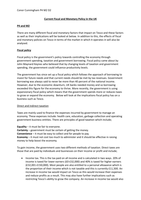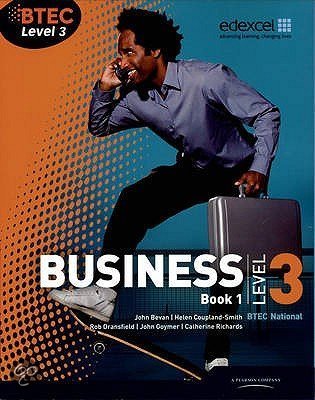Essay
Unit 38 - Business and the Economic Environment - P4 M2 D2
- Institution
- Pearson (PEARSON)
A well written, detailed assignment which meets the criteria for P4 M2 and D2- Unit 38 Business and the Economic Environment. BTEC Level 3 Extended Diploma in Business. P4 - Explain how both fiscal and monetary policy decisions have affected a selected business. M2 - Analyse the effects of fiscal ...
[Show more]





